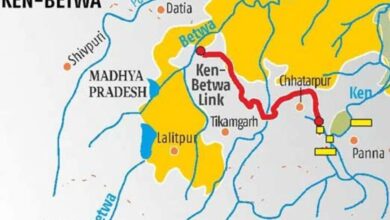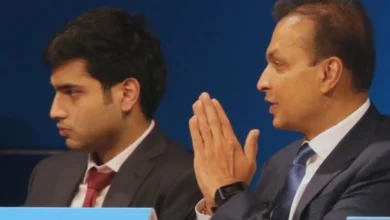The EU stands up to Putin and demands a democratic transition in Belarus
The President of the European Council, Charles Michel, is convening an extraordinary summit on Wednesday to demand a way out of the crisis without violence or outside interference.
Neither Brussels nor Moscow seem willing to lose the Belarusian piece. The president of the European Council, Charles Michel, has called an extraordinary European summit for this Wednesday with the aim of “sending a powerful message of solidarity to the people of Belarus”, according to community sources. Brussels, according to these sources, demands a democratic transition that “gives the Belarusian people the possibility to freely choose their leaders.”
The call for the summit comes a few hours after Russian President Vladimir Putin has offered aid, including military assistance, to the Alexandr Lukashenko regime, reeling since the elections on the 9th. The massive demonstrations this Sunday in Minsk and strikes in the country’s main companies have put the autocrat who has ruled the country for 26 years on the ropes.
The dispute over the political future of Belarus may further deteriorate the relationship between the EU and Russia, very tense since Putin invaded and seized Crimea in 2014. In recent months, some European partners, with French President Emmanuel Macron at the front, they advocated turning the page on the clash over Ukraine and seeking a new understanding with the Russian president. Along the same lines is the President of the United States, Donald Trump, who has tried this summer, without success, to relaunch the G8, which returned to be the G7 after the expulsion of Russia for its aggression against Ukraine.
/cdn.vox-cdn.com/uploads/chorus_image/image/67215569/AP20230295504973.0.jpg)
The European summit on Wednesday, which will be held by videoconference, will allow the 27 members of the Union to show Putin that they are not willing to accept without more than Moscow deciding the future of Belarus without taking into account the opinion of its population. “The situation has evolved very quickly and it is necessary that the leaders of the EU take the reins”, indicate diplomatic sources.
The meeting will allow Brussels to raise the tone and close ranks with the partners who had so far led the rejection of Lukashenko, in particular Poland, Lithuania and Latvia. Lithuania has given refuge to the leader of the Belarusian opposition, Svetlana Tijanóvskaya, and has been willing to open its borders if there is a mass exodus of opponents of the Lukashenko regime.
The still President of Belarus attributes the popular revolt to an international conspiracy to overthrow him, a theory shared by Moscow. “Until they kill me there will be no other elections,” Lukashenko assured on Monday against the boo of dozens of workers. On Sunday, after a telephone conversation between Lukashenko and Putin, the Kremlin was willing to “solve the problems” of Belarus in the face of “pressure from abroad.”
Putin’s embrace could prevent a repeat election. And frustrate a transition that Tijanóvskaya is willing to lead “until the country calms down,” as indicated this Monday by the opposition leader in a video message addressed to her followers.
European sources in Brussels defend “a way out of the crisis through the end of violence, de-escalation and a dialogue between the Belarusian forces without internal interference.” That will be the formula that, predictably, will defend Wednesday’s summit called by Michel. The summit will also condemn “the disproportionate and unacceptable violence” deployed by the Lukashenko regime. And it will demand the “immediate and unconditional” release of all those detained since the elections of last day 9. The 27 will also make it clear that they do not recognise the result of elections held without the presence of international observers and without complying, according to Brussels, international standards of transparency and democratic guarantees. The summit will thus put an end to the EU’s relationship with a leader to whom it had granted some recognition in recent years.

Lukashenko had approached the European Union, mainly because he had a counterweight to the Kremlin’s desire for expansion. Brussels encouraged this western drift with the lifting of almost all sanctions, an increase in financial aid to Minsk and an agreement to facilitate the granting of visas to enter EU territory.
The strange flirtation of the EU with the Belarusian regime came to an end with the alleged upset of the last elections, in which Lukashenko claimed victory with 80% of the votes. The High Representative for Foreign Policy of the EU, Josep Borrell, has assured that the elections “were neither free nor fair.” And the Union’s foreign ministers, in an emergency meeting, agreed last Friday to implement new sanctions to punish those responsible for the electoral fraud and state violence against subsequent protests.




